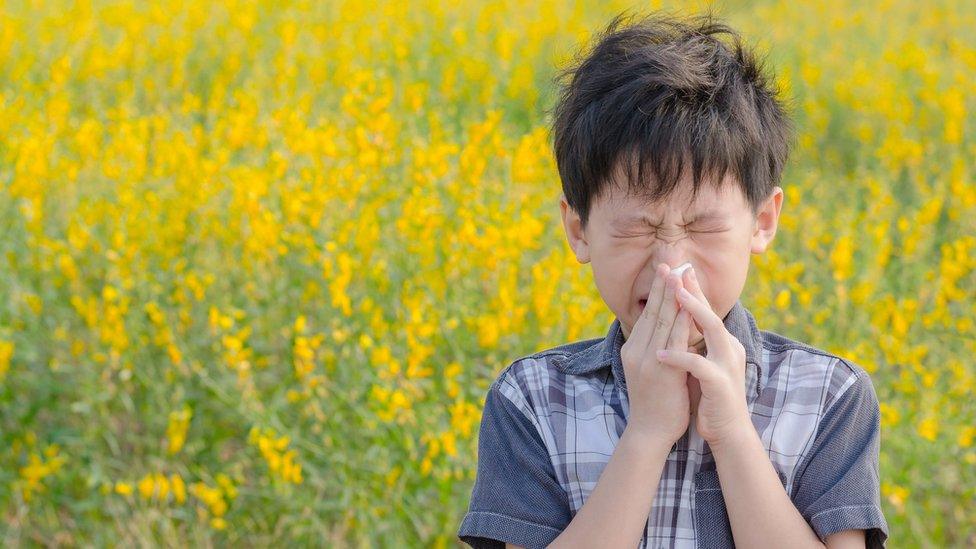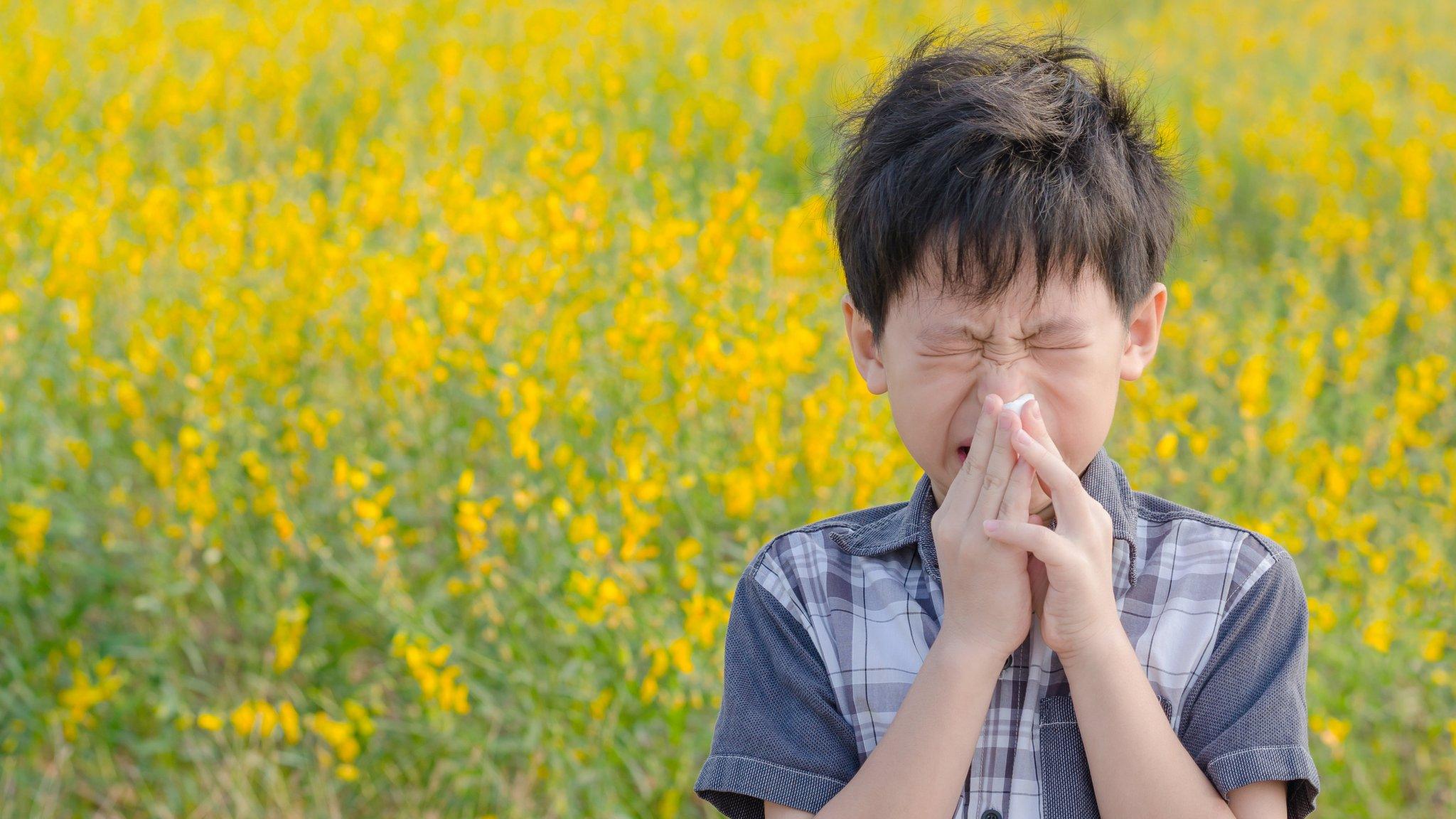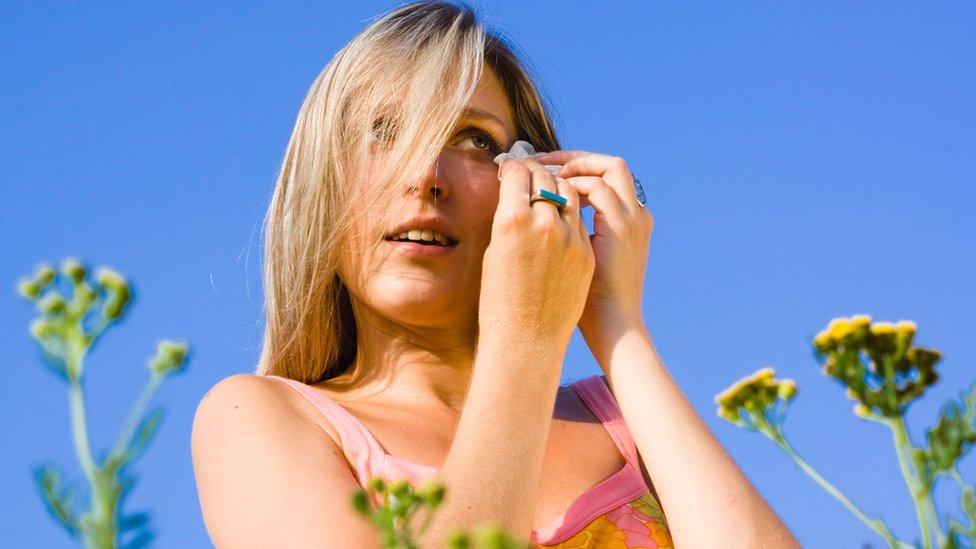Hay fever: Summer may see highest levels of birch pollen, forecaster says
- Published

Hay fever is "usually worse between late March and September", the NHS said
Some of the highest ever levels of birch pollen, which affects about 25% of those with hay fever, could be seen in the summer, a forecaster has said.
The University of Worcester's Dr Beverley Adams-Groom said only a "particularly wet April" could limit levels and stop a "severe season".
She said it was "too early" to predict grass pollen levels, as they would depend on the weather in coming months.
Those with hay fever have been advised to start treatment ahead of the season.
Hay fever is an allergic reaction to pollen, which typically occurs when it comes into contact with a person's mouth, nose, eyes and throat.
According to the NHS, external, it is "usually worse between late March and September, especially when it's warm, humid and windy".

Dr Adams-Groom said this season had the potential to be severe for birch pollen
Birch pollen affects about a quarter of those allergic, while grass pollen affects about 95%.
Dr Adams-Groom, the university's senior pollen forecaster, said this season had the potential to be severe for birch pollen due to a combination of factors, such as the trees' biennial pattern of pollen production and summers "often getting warmer".
She said birch trees have "one mild year and one severe year and this year [is] already expected to be a high year".
"We have already seen the hazel and alder tree pollen allergens, which flower in late winter, produce and emit particularly high amounts of pollen this year," she said.
"The only limiting factor could be if we have a particularly wet April, which might limit pollen dispersal, but assuming we have a normal level of rainfall... the result will be a severe season."
She said people who were less sensitised were more likely to get symptoms, while others were more likely to find breakthrough symptoms, which may require additional treatments.
She added that the predicted levels meant those with hay fever were likely to "suffer on more days".

Follow BBC West Midlands on Facebook, external, Twitter, external and Instagram, external. Send your story ideas to: newsonline.westmidlands@bbc.co.uk, external
- Published25 July 2022

- Published22 June 2018

- Published6 June 2018
